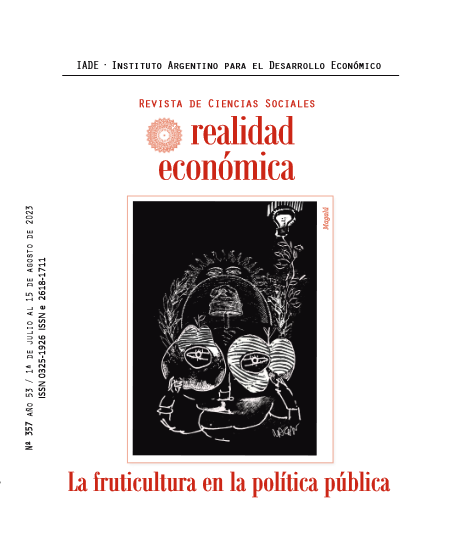Fruit farming in crisis: an experience of selling to the State: a possible way out?
Keywords:
Fruit farming, Concentration, Farmers, Commercialization, State purchaseAbstract
The provinces of Neuquén and Río Negro (located in the northern Patagonia) share fruit farming as an important economic activity for their provinces, mainly based on the cultivation of pears and apples. In recent years, the processes of productive and capital concentration have accelerated and small and medium fruit production has become more subordinate to the agroindustrial complex. At the same time, a large number of farms, due to lack of profitability, migrate to other types of agricultural production or abandon agricultural production altogether. In 2020, the Federation of Fruit Producers of Río Negro and Neuquén promoted and organized, as an alternative marketing channel, a program to sell fruit from Río Negro to the State to be distributed in school canteens. In this paper, we analyze this commercialization experience, its development, scope and implementation and its impact on the participating agrarian subjects, the processes of economic concentration and commercial subordination.
Downloads
Published
Issue
Section
License
La responsabilidad de los artículos firmados recae de manera exclusiva sobre sus autores y su contenido no refleja, necesariamente, el criterio de la dirección ni de la entidad editora.
Los artículos pueden ser libremente reproducidos con sólo acreditar a Realidad Económica como fuente de origen, salvo indicación en contrario.






